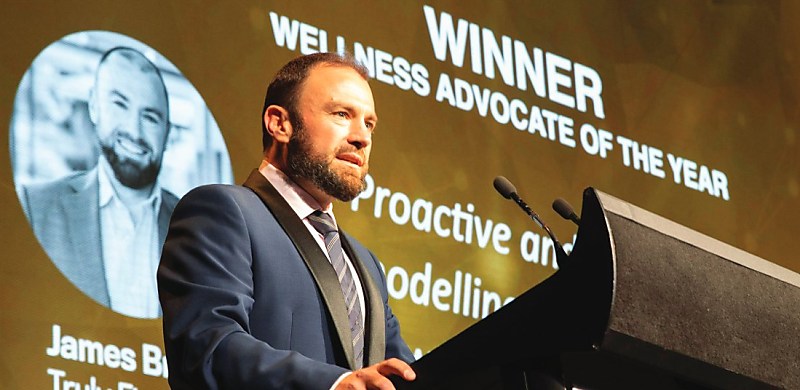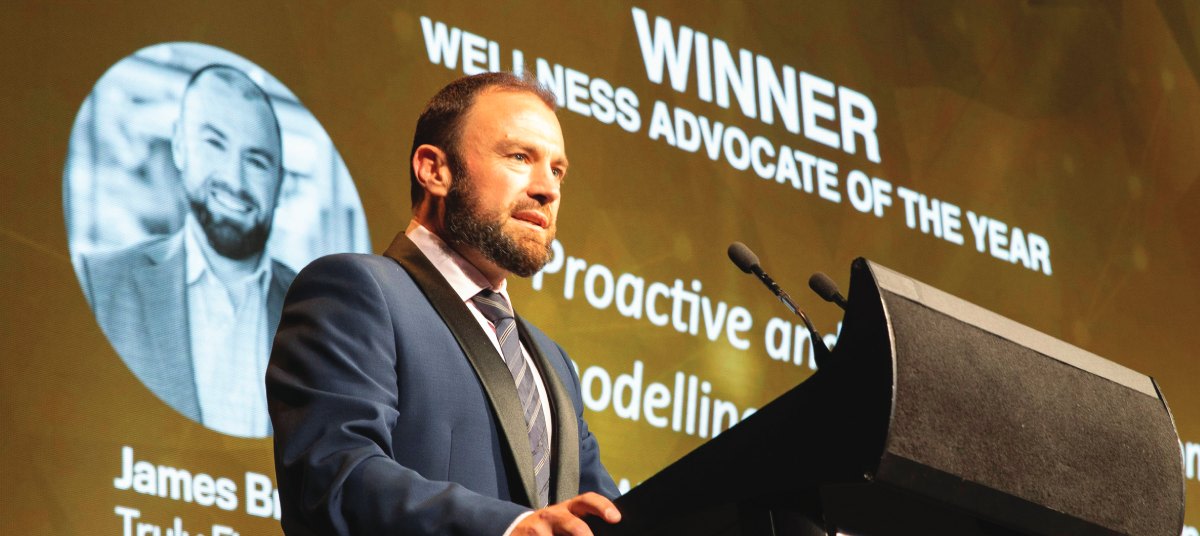
James Brett of Truly Finance was the recent recipient of the Wellness Advocate of the Year NSW/ACT at the Better Business Awards 2023. We sit down with Mr Brett to find out more about his story of how he’s supporting wellness in the broking industry
In March of this year, James Brett of Truly Finance was named the Wellness Advocate of the Year NSW/ACT 2023 for his work supporting those with addiction.
Addiction impacts a vast number of people in Australia. A joint KPMG and Rethink Addiction report, Understanding the cost of addiction in Australia, released in November 2022, suggests that one in four Australians will struggle with alcohol, other substances, or gambling in their lifetime. However, many will still wait years to reach out for help because of stigma.
This content is available exclusively to
The Adviser premium members.
But help is needed. According to the Foundation for Alcohol Research and Education’s (FARE) 2014 report, Alcohol’s burden of disease in Australia, approximately 5,500 deaths and 157,000 hospital admissions are directly attributed to alcohol per year in Australia, making alcohol one of the greatest, yet preventable, health challenges in the country.
The report stated that alcohol was estimated to cause 84,945 years of lives lost in Australian men and 35,223 years in Australian women in 2010, with injuries being the leading cause in male deaths at 45 per cent, while cancers were responsible for the greatest proportion of lives lost in females at 39 per cent.
“This is why I try to work in advocacy and support grassroot activities for addiction recovery, mental health charities and not-for-profit support services,” Mr Brett said.
Speaking to The Adviser about his work, he reveals that it was his own firsthand experience with alcohol addition and recovery that led him to start helping others.
In his 20s, he began an unhealthy relationship with alcohol.
“I went further than most,” he said. “People call it different names: alcoholism, alcohol use disorder, alcohol dependence, alcohol addiction. I didn’t choose to be an addict, and nobody ever chooses to be an addict. It’s a disease that can happen to anyone.”
It was later determined that Mr Brett was suffering from an underlying mental illness and, after working with medical professionals, was diagnosed with major depressive disorder, which he says only exacerbated his condition.
“It became a cycle — like many addicts: drinking because of Depression (and shame and guilt), causing more depression, causing more drinking and so on,” Mr Brett said.
He recounted often waking up after a big night with no memory, just to “crack a beer to even get into the day” and hitting an “early rock-bottom” after causing a head-on car collision while intoxicated.
“I almost seriously harmed an older couple, but fortunately they were ok. But I still didn’t really learn from this even though the consequences were huge,” he said.
After losing his car, job, and an ultimatum from his wife after many episodes and unsuccessful attempts at moderating, Mr Brett began working alongside his psychologist and clinical psychiatrist to admit himself into a life-saving rehab clinic in Bronte where his recovery began for the first 28 days.
“I’m into my 13th year of recovery,” he told The Adviser. “Recovering the person I am supposed to be.”
Providing support
Diagnoses of and treatment for addiction can only be done by a medical professional, but there can be signs and symptoms that may signal someone is experiencing poor mental health or addiction.
There can be visible symptoms, such as physical shaking, restlessness, weight loss/gain, and changes in speech, saliva, coordination, and paranoid behaviours.
But some of the main signs of addiction are changes in behaviour and mood and can sometimes only be subtle.
Changes may include not turning up to work on time, lower quality of work, aggressive or irritable mood swings, or a change in participation in social activities or becoming reclusive.
“At the time I was in active addiction, I made up stories about my life, people thought I was generally fine. Where I was, who I was with, what I was doing. Always feeling good. Always great. I pretended everything was completely fine and OK,” Mr Brett said.
“Sometimes there are no signs, and everything looks fantastic from the outside. This can fool many people!”
However, he says that if you believe someone may be suffering from addiction, there is no harm in asking questions and showing genuine care and empathy.
“The approach I use is mostly about caring about them. ‘I love/care about you and I have noticed XYX, is everything OK?’, ‘Is everything really ok?’, ‘Are you well?’, ‘Are you really well?’, ‘Are you being healthy?’, ‘What are you doing that is not healthy?’” he said.
“I often give them praise for their life, their work, their coping with their situation if I know a little about it. Their strength.”
Mr Brett said that although it can be hard to show compassion in some situations, particularly when being hurt by someone with an addiction, supporting them is often exactly what they need.
“Showing compassion and empathy doesn’t mean actually solving their problems. It means showing them I care. I care enough that I’ve noticed and I want to help them,” he said.
“This first step I have found can be the hardest, because it can be a raw subject. I’ve not been able to know or control people’s reaction to how I’ve approached the subject.
“What I do now with others is a very gentle approach. I let them know I care. I’ll call or text randomly every couple of days, weeks or months to check in.
“This can make a huge difference to someone in pain, as they can feel like someone is with them, supporting them (particularly if they are alone otherwise).”
Mr Brett concluded that there are dozens of 24/7 support services available in Australia.
“We are so lucky in Australia to have incredible support available — for free!” Mr Brett said.
If you or someone you know are struggling with substance abuse or addiction, contact the numbers and services provided here:
Alcoholics Anonymous: 1300 222 222
Narcotics Anonymous:
1300 652 820
Beyond Blue:
1300 224 636
Alcohol and Drug Information Service:
1800 250 015
Lifeline:
13 11 14
Family Drug Support:
1300 368 186

